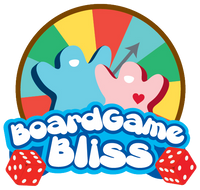Olympos
Products title that includes 'PRE-ORDER' is subject to our Pre-order Policy
Couldn't load pickup availability
Delivery and Shipping
Delivery and Shipping
For more details, please refer to our Shipping and Order Information.
Pre-Order Policy
- Pre-order items are charged at the time the order is placed.
- Prices for pre-order items are subject to change based on final landed costs.
- If the final price is lower, the difference will be refunded to the customer in the form of store credit.
- If the final price is higher, customers will be given the option to either:
- Pay the difference, or
- Cancel the item for a full refund.
- Orders containing pre-order items will be placed on hold until all items in the order are available.
- Once all items have arrived and pricing remains unchanged, the order will be automatically shipped.
- Pre-orders are fulfilled on a first-come, first-served basis.
- If a pre-ordered item becomes unavailable (e.g., the publisher cancels the product), a full refund will be issued.
- Pre-orders may be cancelled and refunded by customers or the store.
- For transactions that are no longer eligible for direct refunds due to payment processor limitations, a store credit will be issued instead.
Description
Description
| Designer | Philippe Keyaerts |
| Publisher | Rio Grande Games |
| Players | 3-5 |
| Playtime | 75 mins |
| Suggested Age | 12 and up |
| Honors | |
| Expansion |
Philippe Keyaerts scored gold with Small World, a new version of his Vinci that was released by Days of Wonder in 2009 to great acclaim and numerous awards. With Olympos, coming from French publisher Ystari Games, Keyaerts has another go at the simplified civilization game. The playing time for Olympos is only 60-90 minutes for 3-5 players, but says Ystari's Cyril Demaegd, "Even if it's a short game, it's a gamer's game."
Players take actions based on their position on a time track, along the lines of Peter Prinz' Thebes. (Says Demaegd, "This is mainly a coincidence because Philippe designed this game years ago.") By spending time, players take actions, with the choices being expansion or development. Expanding brings new settlers onto the game board, which depicts Greece and Atlantis, which lets you conquer territories and thereby acquire resources.
Development takes place on the game's discovery board, with players either buying new scientific discoveries – such as medicine or phalanxes – or building architectural wonders. Each discovery brings you new powers, such as an upgrade in military strength due to the phalanx, and each wonder earns you points.
A player's piety is measured by discoveries, and the most pious player might be rewarded during the game by one of the nine gods included. Similarly, the less pious players might be punished by those same gods.
The replayability of Olympos is huge, says Demaegd, as the discovery board and gods in play will be different each game, not to mention the territories you're able to conquer.

